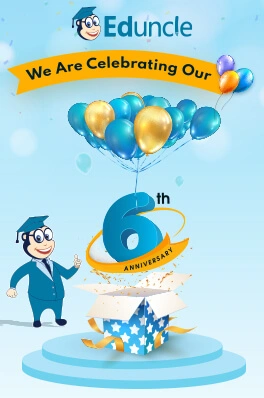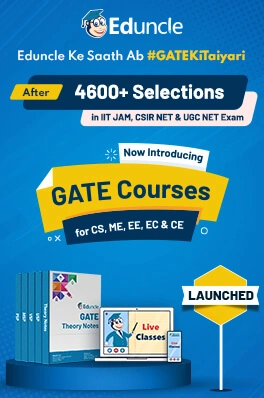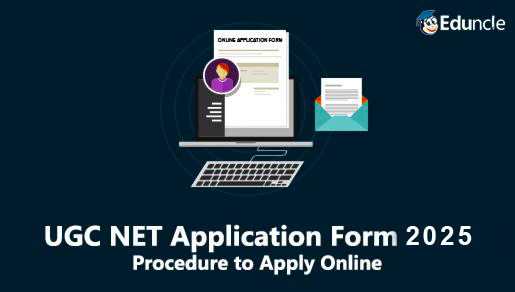Pursuing career in law is one of the top choices in our country for the students who want to become a lawyer. But choosing Law subject in your master's degree not only provide the opportunities as a legal practitioner but also as an Assistant Professor, JRF and several other job options in established government and private organizations.
For this, NTA conducts the UGC NET Exam for students who have completed or are in the final year of law or a related stream and want to explore their career options.
But before applying for the exam, you must know every detail of this Exam that will help you to prepare best. In this detailed guide, we have covered everything you need to know about UGC NET Law 2025, from the latest syllabus and exam pattern to recommended books, tips and study material.
Study Material and Recommended Books
UGC NET Sample Questions for Law
Career Scope After Clearing UGC NET Law Exam
The career scopes after clearing this exam are brilliant. Qualifying the UGC NET Law make you eligible for Lectureship and Research Fellowship and various other jobs in PSUs and reputed organisations.
Below, we have mentioned some popular career options that can be chosen after UGC NET Law exam:
Legal Researcher
Assistant Professor or Lecturer in any UGC Approved Universities
Doctorate Degree in Law
Job in PSUs such as IOCL, BHEL, HPCL, NTPC etc.
Legal Consultant
Government Jobs
Solicitor General or Public Prosecutor
Judicial Cadre Posts
Writer or Editor of Law Books
Law Students trainer
The next step is to check the eligibility criteria and other important details of the exam if you wish to apply for UGC NET.
Get Free UGC NET Study Plan & Boost your Learning
UGC NET Law Eligibility Criteria
Before starting your preparation, it’s crucial to ensure you meet the UGC NET Eligibility Criteria for Law exam.
The National Testing Agency (NTA) has set specific guidelines to shortlist candidates based on their educational qualifications, age limit, and other factors.
Educational Qualification:
To apply for the UGC NET in Law, candidates must fulfill the following educational criteria:
A Master’s Degree in Law (LL.M) or a related subject from a recognized university.
55% (For General)
50% (For OBC/SC/ST/PwD/Transgender).
Age Limit:
For NET JRF, the age limit is
30 years (For General)
35 years (for OBC/SC/ST/PwD/Female/Transgender)
For Assistant Professor, there is no age limit criteria.
Note: Candidates who are pursuing L.L.M. Degree will get 3 years relaxation in age.
If you are in the qualifying year of your master’s or have passed the exams but in the result awaited category, then also you can apply for UGC NET. But, as per the NET Exam eligibility, the PG results must be declared within the 2 years from the release date of UGC NET Result declaration.
UGC NET Law Syllabus 2025 – Important Topics for Paper 1 & Paper 2
A well-structured study plan begins with understanding the complete UGC NET Law Syllabus. The syllabus is divided into two papers:
Paper 1 – A general paper designed to assess teaching and research aptitude.
Paper 2 – A subject-specific paper focusing on Law concepts.
below we have provided some important topics from the UGC NET Syllabus for both the papers. To help you prepare effectively, our experts have analyzed previous years' question papers and highlighted the most important topics for both papers.
List of Important topics in UGC NET Paper 1
Here are the key topics you should focus on while preparing for the exam:
| Topics |
| Teaching Aptitude |
| Reasoning |
| Research Aptitude |
| Computer |
| People and Environment |
| Governance, Polity and Administration |
| Science |
| Communication skills |
List of Important topics in UGC NET Law Syllabus
The NET JRF Syllabus for Law is vast, i.e., there are 10 units in this subject. Below, we have mentioned the important topics from the Syllabus.
| Unit |
Topics |
| Unit - 1 |
Jurisprudence |
| Unit - 2 |
Constitutional and Administrative Law |
| Unit - 3 |
Public International Law and IHL |
| Unit - 4 |
Law of Crimes |
| Unit - 5 |
Law of Torts, and Consumer Protection |
| Unit - 6 |
Commercial Law |
| Unit - 7 |
Family Law |
| Unit - 8 |
Environment and Human Rights Law |
| Unit - 9 |
Intellectual Property Rights and IT Law |
| Unit - 10 |
Comparative Public Law and Systems of Governance |
Once you're familiar with the syllabus, you must check its exam pattern and marking scheme to strategize your preparation.
Download UGC NET Law Syllabus 2025 Free PDF
UGC NET Law Exam Pattern & Marking Scheme
Understanding the UGC NET Law Paper Pattern and the marking scheme is crucial for planning your study strategy. It helps you allocate your time efficiently and maximize your scores.
UGC NET 2025 Exam Pattern for Law consists of two papers i.e.
Paper 1 – It is a common General Aptitude Test which evaluates your teaching and research aptitude.
Paper 2 – Paper 2 is subject-specific. This helps in evaluating your knowledge of Law subject.
The marking scheme for the Law exam as per NTA guidelines is given below:
| Law Paper Pattern |
Paper I |
Paper II |
| Marks |
100 |
200 |
| Number of Questions |
50 Questions all are Compulsory |
100 Question all are Compulsory |
| Questions Based on |
Teaching & Research Aptitude, Communication, Mathematical Reasoning & Aptitude, Comprehension, Logical Reasoning, ICT, People, Development & Environment, Data Interpretation |
Law and related subjects |
| Duration |
3 Hours (without break) |
|
Important Note - There is no negative marking for any wrong answer.
Now, the next step in preparing your study plan is to set targets and goal. To know how refer to the section below.
UGC NET Law Cut-off
For Law Exam, you must have the idea of cut-off marks as it helps to understand the difficulty level of the exam and plan your preparation in the best possible way using the target-goal strategy.
We have prepared the following UGC NET Cut-Off list according to the december 2024 result.
| Category |
JRF |
Assistant Professor |
Phd only |
| UNRESERVED |
218 |
194 | 174 |
| OBC(NCL) |
202 |
178 |
158 |
| SC |
190 |
166 |
148 |
| ST |
190 |
156 |
138 |
| EWS |
208 |
180 |
156 |
Note: Please note, the cut-off of PWD categories is range (for UR, OB, SC, ST &EW).
UGC NET Law Study Material & Books
After obtaining all the pre-required information for the exam, the next step is to begin your preparation with quality study material.
The books and notes you prefer must be designed based on an updated syllabus and the latest pattern of the NET exam by the exam experts.
Eduncle provides a well-structured UGC NET Study Material which has been helping students get success over the years.
our quality study notes with free expert guidance have helped over 2160+ students reach their goals. Getting this study material with question papers and mock tests can help you strengthen your exam preparation from the following table.
| Download Free UGC NET Material for All Subjects [Trusted & Recommended by 6600+ Selected Students] |
| Updated Syllabus for All Subjects |
| Sample Theory Notes |
| Model Test Papers with Solution (Paper 1 & 2) |
| 5 Previous Exam Papers with Answer Keys |
| Complete Study Plan for Paper 1 |
| Paper Analysis by Eduncle Experts |
| Personalized Guidance by Subject Experts |
| Live Class (Free Demo Class) |
Below are some of the best books for UGC NET Law recommended by experts and toppers:
| Book Name |
Author/Publication |
Why Choose This Book? |
| UGC NET General Paper I of Law |
M. Gagan, Sajit Kuma |
Comprehensive content, detailed |
| UGC NET/SLET law |
Pankaj Jaiswal |
Comprehensive content, detailed legal concepts, and previous years’ solved papers. |
| Law UGC NET/SLET |
Sawlashwa BK |
Simple language, concept clarity, and ample practice questions. |
| NET Law Paper 2 |
Trueman’s |
Extensive topic coverage and practice sets with detailed explanations. |
How to Prepare for UGC NET Law?
The difficulty level of UGC NET is high. To get success in this exam, you must be highly passionate and dedicated to your studies. Following are some preparation tips and success mantras that will help you to achieve your goal.
A perfect preparation strategy is to start with the UGC NET Paper 1, which is simpler than Paper 2.
Once you complete Paper 1, start with Paper 2 which requires more time. You should make a list of important topics as per their weightage in the previous years' UGC NET Question Papers.
Make a well-structured study plan for preparation and keep at least 2 topics for each day. Make sure you study at least 7 hours a day to get a grip on these topics.
Prepare short notes It is the best way to revise the complete syllabus in a short time.
Time management is very effective in preparation and during the exam to get success. Give time to the topics according to their importance level.
Solve previous years' Question Papers for law and then check the UGC NET Law Answer Key to evaluate your level of preparation.
Practice mock test papers to boost your speed and accuracy. Take UGC NET Mock Test for Paper 1.
Take help from experts of Law subject to clear your doubts and concepts.
Stay relaxed and focused.
To help you evaluate your current preparation level, we have provided some sample questions based on NET Law Paper 2. Try Solving these questions and improvise accordingly.
UGC NET Law Sample Questions
| Ques - 1 Clause (4) of Article 15 has been added to the Constitution by (1) The Constitution First Amendment Act (2) The Constitution Second Amendment Act (3) The Constitution Fourth Amendment Act (4) The Constitution Sixth Amendment Act
Ques – 2 The Supreme Court of India formulated the doctrine of eclipse in (1) Bhikaji Narain Dhakras Vs State of M.P. (2) Bashesharnath Vs Income Tax Commissioner. (3) State of W.B. Vs Anwar Ali Sarkar (4) Maneka Gandhi Vs Union of India
Ques – 3 The Supreme Court of India while considering the validity of proclamation of emergency under Article 356, said that the proclamation is subject to judicial review in one of the following cases. (1) R. Bommai V/s. Union of India (2) Makan Singh V/s. State of Punjab (3) State of Maharashtra V/s. Lok Shikshan Sansthan (4) Karunanidhi V/s. Union of India
Ques – 4 “An offer need not be made to all the world which is to ripen into a contract with anybody who comes forward and performs the condition. It is an offer to become liable to anyone who, before it is retracted, performs the conditions, and although the offer is made to the world, the contract is made with that limited portion of the public who come forward and perform the condition on the faith of the advertisement.” Above statement is attributed to – (1) Bowen L.J. in Weeks V/s. Tybald (2) Bowen L.J. in Carlill V/s. Carbolic Smoke Ball Co. (3) Bowen L.J. in Lalman Shukla V/s. Gauri Datt (4) Bowen L.J. in Malraju Lakshmi Venhayyamma V/s. Venkata Narasimha Appa Rao
Ques – 5 The right of a person to be appointed as a guardian of his minor children under the personal law is not a fundamental right was decided by the Supreme Court in one of the following cases: (1) Mohd-Aslam v/s. Union of India (2) Sahifzada Saiyed Muhammed Amirabbas Abbasi v/s. State of Madyabharat (3) Khatri v/s. State of Bihar (4) Faruk v/s. State of M.P.
Ques – 6 Which of the following statement/s is/are correct? Answer by using the codes below: (a) “Mediation” is not “pacific means” of settlement of International Disputes. (b) “Pious Fund Case” is an important decision given by the Permanent Court of Arbitration. (c) “Retorsion” is a compulsive or ‘coercive’ means of settlement of international Disputes. (d) A leading case on “Reprisal” is the “Naulilaa Incident”. Codes: (1) Only (b) is correct. (2) (a), (b) and (c) are correct. (3) (b), (c) and (d) are only correct. (4) (a), (b), (c) and (d) all are correct.
Ques – 7 The Muslim Personal Law (Shariat) Application Act 1937 is applicable to all kinds of property except (1) Agricultural land, testamentary succession and Charities other than wakfs. (2) Testamentary succession and charities other than wakfs only. (3) Agricultural land and testamentary succession only. (4) Agricultural land and charities other than wakfs only.
Ques – 8 “The law of National or International law may be defined as the body of rules and principles of actions which are binding upon civilized states in their relations with one-another.” This definition of International law was given by (1) L. Brierly (2) Torsten Vitel (3) Hackworth (4) None of the above
Ques – 9 In which following case, International Court of Justice deny existence of customary rule? (1) North Sea Continental Shelf case. (2) The Lotus case. (3) Both of the above. (4) None of the above.
Ques – 10 Which of the following sources of International Law does not find or mention in Article 38 of the statute of the International Court of Justice but it has now become a well-recognized source? (1) International conventions (2) General Principles of Law Recognized by Civilized Nations (3) Decision of Judicial or Arbitral Tribunals and Juristic Works (4) Decisions or Determinations of the Organs of International Institutions
Ques – 11 “The task of social engineering is to build as efficient structure of the society as possible with minimum friction and waste.” This statement is of: (1) Kelsen (2) Roscoe Pound (3) Savigny (4) Karl Marx
Ques – 12 Which of the following statement(s) is/are correct? (a) According to the constitutive theory of recognition, statehood or the authority of the new government exists as such prior to and independently of recognition. (b) De Jure recognition is by nature provisional and may be made dependent on conditions with which the new entity has to comply. (c) The principle that there is no distinction between de facto and de jure recognition for the purpose of giving effect to the internal acts of the recognized authority was laid down in Luther Vs. Sagar. (d) De jure recognition is final and once given cannot be withdrawn. Codes: (1) Only (b) is correct. (2) Only (a), (b) and (c) are correct. (3) Only (b), (c) and (d) are correct. (4) (a), (b), (c) and (d) all are correct.
Ques -13 Read the following Principle: “There is always an imposed duty on a person to act on moral necessity to preserve one’s life, yet there may be justifiable occasions of causing harm on innocent persons.” In the light of the above, in which of the following circumstances the accused can claim doctrine of self-preservation under the provisions of Sec. 81 of IPC? (1) When necessity is pleaded as a means of defence under sections 96 to 106. (2) Self-preservation is not an absolute necessity, so killing the weaker is justifiable by the stronger. (3) Arresting a drunken person moving in great danger at a public place. (4) When there is no choice of evil affecting the accused.
Ques – 14 ‘Sometimes it happens that the legal right of a person is violated but he does not suffer any harm.’ From which one of the following maxim we can attribute it? (1) Damnum sine injuria (2) Injuria sine damno (3) Volenti non-fit injuria (4) Resipsa loquitur
Ques -15 Trade unionism to be fully effective demands? (1) Union of trade (2) Trade of union (3) Democratic spirit and education (4) Soul-elevating and democratic spirits
|
Free Download UGC NET Question Papers with Solutions
UGC NET Law Frequently Asked Questions
While preparing for the UGC NET Law many students come across various doubts and queries. In this section we have included all the most common questions asked by them to our mentors.
If you have any query regarding the subject or exam refer to the following questions or to the UGC NET FAQ blog.
Q1. How to prepare for NTA Law Exam?
Ans.) UGC NET exam preparation goes in a phase-wise manner:
Get details like syllabus, exam pattern and eligibility
Get quality Study material and recommended books for reference
Cover the important topics for Paper 1 and Paper 2 first.
Solve at least last 5 years’ question papers.
Practice as many Mock Tests as possible during the last one month
Revise thoroughly what you have learnt.
Q2. Do we get a job directly after clearing the NET Law Exam?
Ans.) Yes, after qualifying for the UGC NET Exam you are eligible to get a direct job in various Government as well as Private organisations.
Q3. Can we clear NET Law exam without coaching?
Ans.) Most students prefer coaching classes to prepare for the exam. However, many candidates prefer self-study and a lot of them have cleared the exam. So, it not necessary to join coaching for clearing the exam.
Q4. How to prepare with NET Law previous years’ question papers?
Ans.) First and foremost solve the whole question paper on your own. Then match it with the answer key provided. At last, look for the solution of the questions who have attempted wrong.
Remember to make notes where you have made mistakes and work on them.
Q5. How many students appeared for the UGC NET exam in last year?
Ans.) As per NTA, a total of 6,39,069 students were appeared for UGC NET Exam (in all 85 subjects) and more than 12 lakh students registered for the exam.
In this article, we have mentioned all the details related to the UGC NET Law Exam 2025. We hope that the provided information will play an important role in your success in National Eligibility Test 2025.
If your query related to this exam hasn’t be answered yet, please drop your queries in the comments box also you can join our telegram channel
Also, if you want to give an extra edge to your preparation for UGC NET then download the Eduncle App, where you can get answers to all your doubts from a pan-India community of students and experts.
Thank You.

























